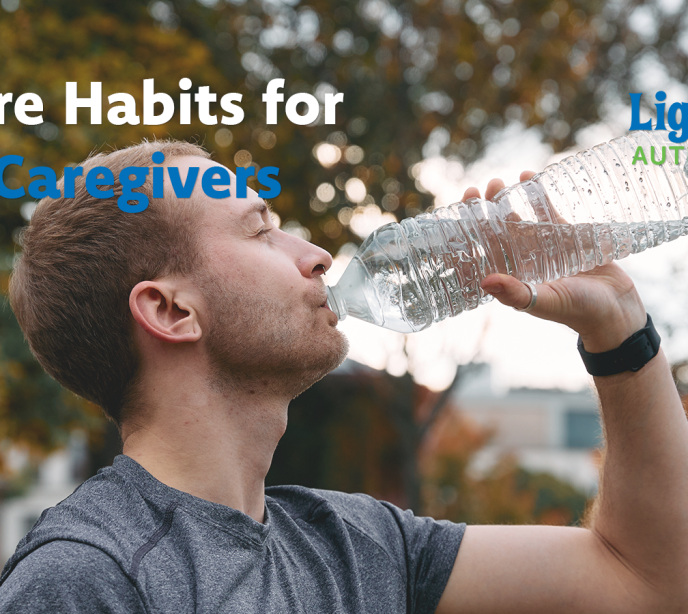Autism drowning risks tackled with swim program
Paula Tyrie’s family is moving to a house just two blocks from the Rahway River, and she already has her emergency plan:
If her 10-year-old autistic son goes missing, one of her teenage twins will look in the park. The other will head to the river.
That’s because half of all children with autism are prone to wandering, and their fascination with water puts them at risk for drowning.
To address this double-whammy of danger, the advocacy group Autism Speaks is funding private swim lessons in hopes of imparting a life-saving skill.
“High five!” instructor Johanna Safranski urges Nick, her student, at a recent private lesson at the Center for Lifelong Learning in Parlin. By reaching his arm out of the water to slap her palm, he’ll mimic the beginning of the crawl stroke.
“I want him to be able to enjoy himself, and if he’s ever in a situation where he’s in water unexpectedly, to try to save himself,” said Tyrie, watching the lesson from the bleachers.
Parents like Tyrie point to the case of Avonte Oquendo, the severely autistic Queens teenager who bolted from his school last year. After a city-wide search, his remains were found washed up on the shore of the East River three months later.
Autism expert Walter Zahorodny said he doubts children with autism are drawn to water any more that all children are. What makes them different is the inability to grasp its inherent danger, and a delay in processing safety rules, he said.
For example, while Nick Tyrie’s mother said he loves playing in the pool, he really doesn’t distinguish between the shallow end and the deep end — to his peril.
“That’s what scares parents — the lack of fear,” said Safranski, the swimming teacher.
A 2012 study found that half of children with autism had attempted to leave their home, school, or other supervised setting at least once after the age of 4. Of those, half were missing long enough to cause concern. Some parents even reported their child attempted to bolt several times a day.
“Many children with autism, especially between the ages of 4 and 12, have a greater likelihood of walking away, leaving their home, or leaving the secure area where the family is vacationing,” said Zahorodny, director of the New Jersey Autism Study and a faculty member at Rutgers University’s New Jersey Medical School in Newark. “And of course that causes panic with the parent.”
More than a third of wanderers do not have the language skills to communicate their name, address, or phone number.
In another survey, two out of three parents of wanderers reported a “close call” with traffic.
While encounters with traffic caused plenty of concern, drowning caused the majority of deaths from wandering from 2009 to 2011.
The Autism Speaks scholarships pay for four private half-hour lessons.
Nearly 5 years old, Cayden Rinehart speaks only a handful of words, yet appears to understand all of his swimming teacher’s instructions — even if he sometimes ignores them.
His grandparents have a pool that he loves, said his mother, Christy Rinehart, of South Amboy. Yet, they have to put on his swim vest the minute he arrives at their house, because otherwise he’ll jump right in without it.
Safranski said children with autism tend to be visual learners, so she shows them what she wants them to do instead of merely telling them. She may even move their legs back and forth in addition to telling them to “kick.”
“You just have to do it ten different ways until something works,” she said. “We do things over and over and over and over.”
The biggest challenge, it turns out, is discouraging her students from drinking the water. Cayden’s a drinker, constantly trying to slurp up the puddles along the pool edge. He even requires constant parental vigilance when he’s taking a bath, his mother said.
At home, he’s learning how to spit out toothpaste, which they hope will translate into the ability to blow bubbles while under water.
It was Safranski who heard about the Autism Speaks swim scholarships and applied for a $2,500 grant. Aquatics and Fitness Center program coordinator Katelyn Dauphinee said that after handing out flyers, they got 100 applications for 42 slots. They are hoping to run a second set of lessons soon.
“It’s a life skill they need,” she said.
For the original article published on www.nj.com visit the link below:
Together, we can unlock your child’s potential
Related News

01/15/2026
10 Simple Self-Care Habits for Autism Caregivers
Caring for a child with autism is rewarding, but can also be demanding in ways that aren’t always visible. Between daily routines, therapy schedules, advocacy, and emotional labor, many caregivers find themselves running on empty, even as they continue to show up for their child every day. Earlier this year, we explored this reality in our blog post, The Power of Pause: Why Caregiver Self-Care […]

01/05/2026
The Power of Pause: Why Caregiver Self-Care Matters
As a new year begins, many families naturally reflect on what they hope the months ahead will bring—more peace, more balance, more support. At Lighthouse Autism Center, we’ll be taking a deeper look at the importance of self-care throughout the month of January, offering resources and encouragement to help caregivers start the year feeling supported and grounded. But […]

11/18/2025
Tips for Picky Eaters and Introducing New Foods
Autistic children are often labeled as picky eaters, but the truth is that they face a unique set of challenges that can make mealtimes extremely stressful. Discover helpful tips on introducing new foods into your child’s diet to make mealtimes more nutritional and enjoyable for everyone at the table. Autism and Food: Tips for Introducing […]


